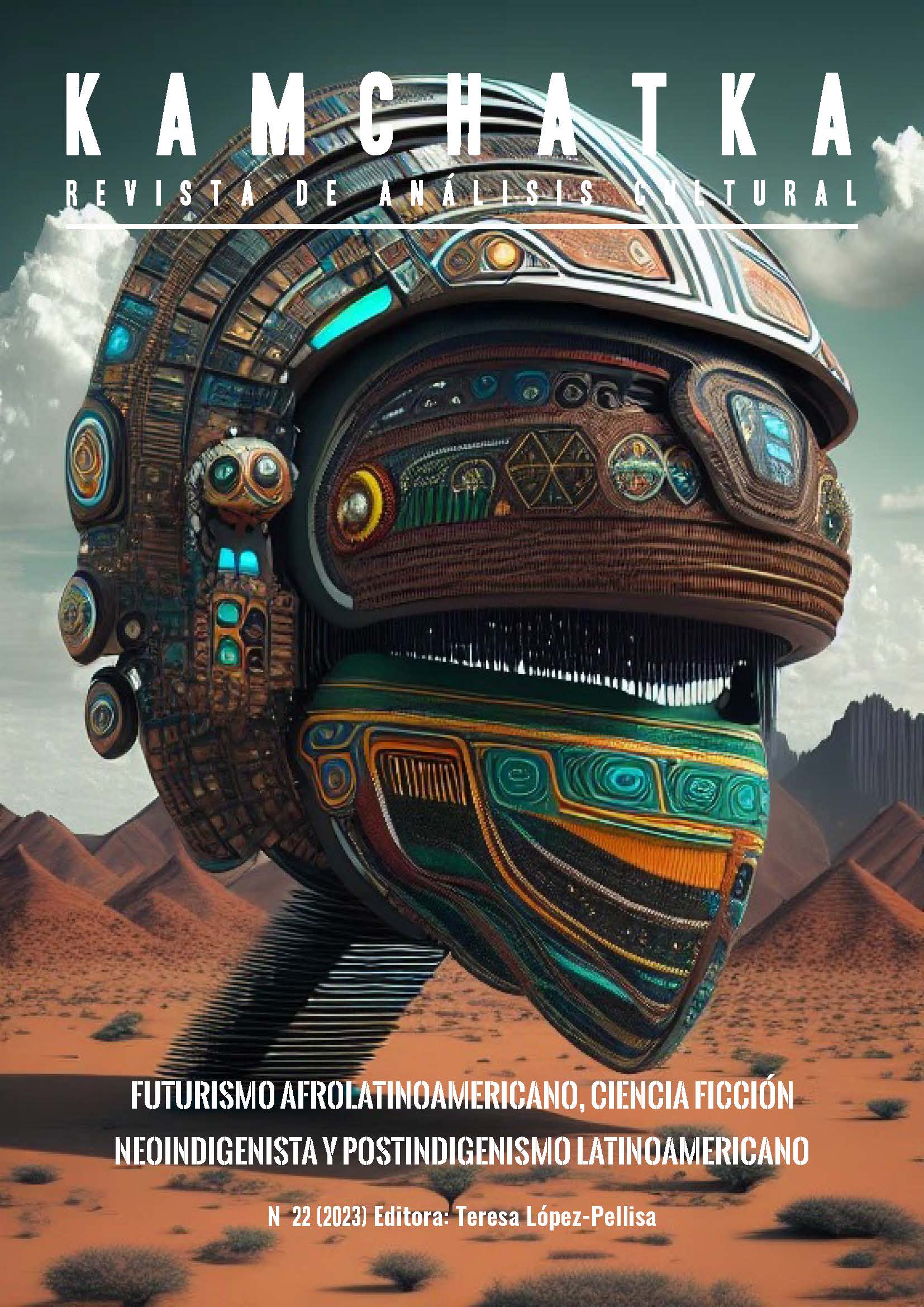'Future arrived a long time ago'. Communities in Latin American short stories of the present
DOI:
https://doi.org/10.7203/KAM.22.24234Keywords:
Latin American literature, Community, Violence, Border, Citizenship. Abstract
Abstract
In Latin American literature of the present, subjectivities in transformation emerge that inhabit border territories in crisis. The protagonists of “Noche de fiesta” by Natalia García Freire (2019), “La furia de las pestes” (2015) by Samanta Schweblin and “Canícula” (2013) by Claudia Hernández abandon their ways of life and habits to transit citizen wastelands in a topography close to nature, in communities with other species, opening renewed surfaces in the face of the opacity of a hostile universe.
These literary texts inscribed in the verbal limits, in the crossroads of lands and ethnicities change, bursting the delegitimization of full citizenships to occupy an oscillating space between shelter and the outdoors. So, what remains when the scorched earth exposes the outside of skins and territory?
These narratives record fertile traces that allow us to approach other ways of life, other (un)livable scenarios, other materialities in the dermal, corporal and territorial dimension, other alterities that are founded on the citizen wasteland and the oblivion of those remnants that remain after the extermination or the precarious survival, sharing uncertain futures that are debated between the living and the sacrificial.
 Downloads
Downloads
 References
References
Agamben, Giorgio (2004). Estado de Excepción. Homo Sacer II. 1. Buenos Aires: Adriana Hidalgo Editora.
Arguedas, José María ([1958]1986). Los ríos profundos. Cuentos escogidos. Chile: Biblioteca Ayacucho-Hyspamérica.
Bianchi, Paula Daniela (2019). Cuerpos marcados. Prostitución, derecho y literatura. Buenos Aires: Didot.
Butler, Judith (2006). Vida precaria. Buenos Aires: Amarroutu.
Butler, Judith. “Crear un mundo habitable” Revista Disenso (2021)
Cornejo Polar, Antonio. “Sobre el ‘neoindigenismo’ y las novelas de Manuel Scorza”. Revista Iberoamericana. Vol. 50, 127 (1984): 549-557.
Escobar, Ticio (2021). Aura latente. Buenos Aires: Tinta limón.
Ferrer, Reneé (1986). La seca y otros cuentos. Asunción: El Lector.
García Freire, Natalia. “Noche de fiesta”. La gran belleza, Nº 6.
Haraway, Donna (2019). Seguir con el problema. Bilbao: Consonni.
Hernández, Claudia (2013). “Canícula”. Causas Naturales. Ciudad de Guatemala: Editorial Santillana: 67-69.
Kurlat Ares, Silvia. “Entre la utopía y la distopía: política e ideología crítica de la ciencia ficción”. Revista Iberoamericana, Vol. LXXXIII, 259-260 (2017): 401-417
Nixon, Rob (2011). Slow Violence and the Environmentalism of the Poor. Harvard: UP.
Mbembe, Achille (2011). Necropolítica. Madrid: Muselina.
Plá, Josefina (1969). “El ñandutí y otros encajes”. Las artesanías del Paraguay. Asunción: Ediciones Comuneros: 49-56.
Pratt, Marie Louise (2018). Los imaginarios planetarios. Madrid: Aluvión
Rancière, Jacques (2011). “Universalizar la capacidad de cualquiera”. El tiempo de la igualdad. Barcelona: Herder: 233-4.
Rivera Cusicanqui, Silvia (2018). Un mundo ch`ixi es posible. Ensayos desde un presente en crisis. Buenos Aires: Tinta y Limón.
Rivera Garza, Cristina (2017). Había mucha neblina, o humo o no sé qué. Buenos Aires: Random.
Rulfo, Juan (1953). El llano en llamas. México: Fondo de Cultura Económica.
Schweblin, Samanta (2002). El núcleo del disturbio. Buenos Aires: Destino.
Vargas Llosa, Mario (1996). La utopía arcaica. José María Arguedas y las ficciones del indigenismo. México: Fondo de Cultura Económica.
Valencia, Sayak (2010). Capitalismo gore. Madrid: Muselina.
Vivas Hurtado, Selnich (2015). Komuya uai. Medellín: Sílaba.
Yánez Cossío, Alicia ([1973] 1980). Bruna Soroche y los tíos. Quito: Antares.
Downloads
Published
How to Cite
-
Abstract717
-
Artículo PDF (Español)418
Issue
Section
License
This journal provides an immediate free access to the content on the principle that freely make investigation available to the public, which promotes an increased global knowledge exchange.
Unless otherwise indicated, texts published in this journal are under the license Attribution-NonComercial 4.0 by Creative Commons. These texts may be copied, distributed and publicly communicated whenever the publication’s author and title are quoted and whenever they are not used for commercial purposes. In any case, intellectual property of the articles and its potential economic rights entirely belong to its authors.
The full license can be consulted on https://creativecommons.org/licenses/by-nc/4.0/. We encourage authors to disseminate papers published in Kamchatka. Journal of cultural analysis electronically, in institutional digital repository or in their websites.





